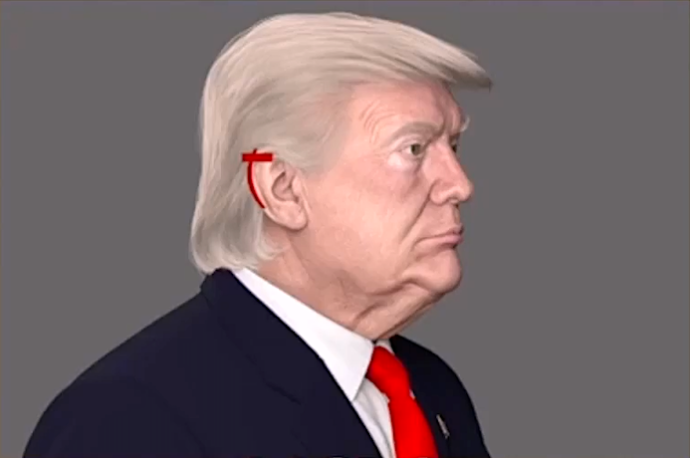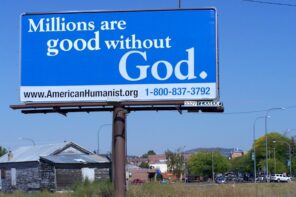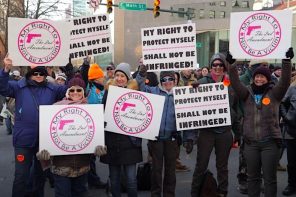I had some finessing to do on Sunday.
I filled in for a colleague the morning after the attempt on former president Donald Trump’s life, you see. Just about everyone in the congregation had heard about it by that point, and they expected me to say something about it. But what? My denomination may have a progressive reputation but that’s not always the case, and in our neck of the woods it can be difficult to parse just how not-the-case a given congregation might be. Going even a bit too far one way or another risked cheesing off a healthy portion of the faithful gathered for worship that morning.
Hell, in some places even saying the name Trump without the proper intonation suffices to set somebody off. Is it any wonder clerical types look a little extra nervous these days?
In the end, I came up with what seemed like an artful dodge. I told the congregation that a prayer for Trump—or the situation—wouldn’t fit into the already-prepared litany. (Actually true, I swear.)
But what if it had? What if I were forced to consider the question of whether or not to pray for Donald J. Trump? I would say this: To pray for leaders as leaders is… fine. Given the mutterings about civil war that have popped up since the shooting, we can allow for a little prayer in self-defense.
It is easy to go too far, however. To take just one example, Stephen Bannon declared from prison that Trump was shielded by the “armor of God,” a catchphrase for militant right-wing Christians.
Another popular talking point on the right, that Trump is under “God’s protection,” quickly runs into questions of theodicy—i.e., if there is a God, why would they permit evil? If Trump is truly under divine protection, what’s the Secret Service, a bunch of potted plants? And what sort of cockamamie God would protect someone like a presidential candidate, only to allow him to be nicked in the ear? Either God’s protection isn’t worth very much, or there’s some kind of warning in there for Donald John Trump.
Most of all, why would God place a shield around Trump, but not those at his rally or the hundreds of others killed by stray bullets, including nine-year-old Milwaukee resident Jonael Zambrano, whose death Republican Congressman Bryan Steil cited in defense of Trump labeling Milwaukee a “horrible” city?
The answer, of course, is that the MAGA movement reveres Trump as a quasi-messianic figure who represents their political aspirations. An attack on Trump is an attack on the MAGA whole—and that whole is quick to bluster that mere bullets cannot stop their triumphal march to social dominance. That alone gives good cause to look askance at prayers for “God’s protection.”
Likewise, it’s fine for Democrats and other left-of-center types to offer prayers for Trump. Neither Biden nor Kamala Harris nor any other leader can risk appearing to fan the flames of political violence, and it certainly matches the American context to call for prayer to turn down the temperature a bit.
Certainly, no minister like me will ever snub a bit of empathy. But this approach risks overshadowing the very real, and very serious misgivings many have about the man who, among other legal issues, faces “88 criminal charges for his efforts to overturn the 2020 election.” You don’t have to be objectively pro-assassination to believe, as 51% of voters in a recent poll do, that Donald Trump poses an existential threat to American democracy and the life of the world. That problem requires more than “thoughts and prayers” indeed.
So if it takes the former president many more years of golf in Saudi Arabia (or another, similar nation without an extradition treaty) to ensure that these concerns about democracy are addressed well then so be it. I’m not above a bit of strategic prayer (and whether you’re a praying person or not, I hope you’re not either).
One of my touchstone thinkers, Walter Brueggemann, calls prayer “the theological imagination of the community”—which gets at the real problem here. Namely, it’s once again all about you-know-who. When it comes to politics, American theological imagination is so depleted that its expression in prayer can’t do more than relay our prior assumptions about Trump: good, bad, or indifferent—and honestly, there’s not a heck of a lot of that last category.
So for those who do pray, we ought to pray for something beyond “Trump good, Trump bad.” A good place to start might be for the health of a nation awash in over 300 million guns. Or we might ask for a society driven by something more than the primal desire of one ethnic group to dominate others. We could even shoot the moon and pray our divisions be healed and we all be reconciled to one another.
On the other hand, you try that on Sunday morning and let me know how it goes.





